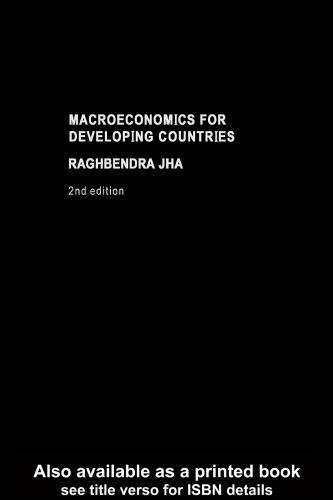2 One of the areas in which the IMF has been evaluated is its response to financial...
Question:
2 One of the areas in which the IMF has been evaluated is its response to financial crises. Supporters of the IMF contend that the IMF is not only relevant but more necessary than ever today, given the speed with which an economic crisis can develop and spread. They point to the role that the IMF played during the debt crisis of the 1980s, the Mexican peso crisis in 1994–95, and the Asian financial crisis. Specifically, the IMF helped arrange credit for the beleaguered nations, aided in negotiations with outside creditors, and assisted with structural adjustments to prevent further problems. In some of these ways the IMF was serving in the international economy one of the principal functions of a central bank in a country—that of a lender of last resort. According to some observers, there is no other multinational institution, financial or otherwise, that could have performed this function. The IMF argues that member countries must endure the short-term pain of adjustment in order to enjoy long-term gain. Many critics have claimed that the IMF has placed most of the burdens of market-based adjustment on vulnerable groups in member countries. During the widespread structural adjustment programmes of the 1980s, the IMF frequently required member countries to reduce government spending. Governments responded by cutting back on programmes that the poor, women, children, and other vulnerable groups heavily relied on, e.g., food subsidies, health care and education.
If you could rewrite the constitutions of the Bretton Woods Institutions, how would you ensure that their programmes do not end up hurting the poor in developing countries?
Step by Step Answer:







